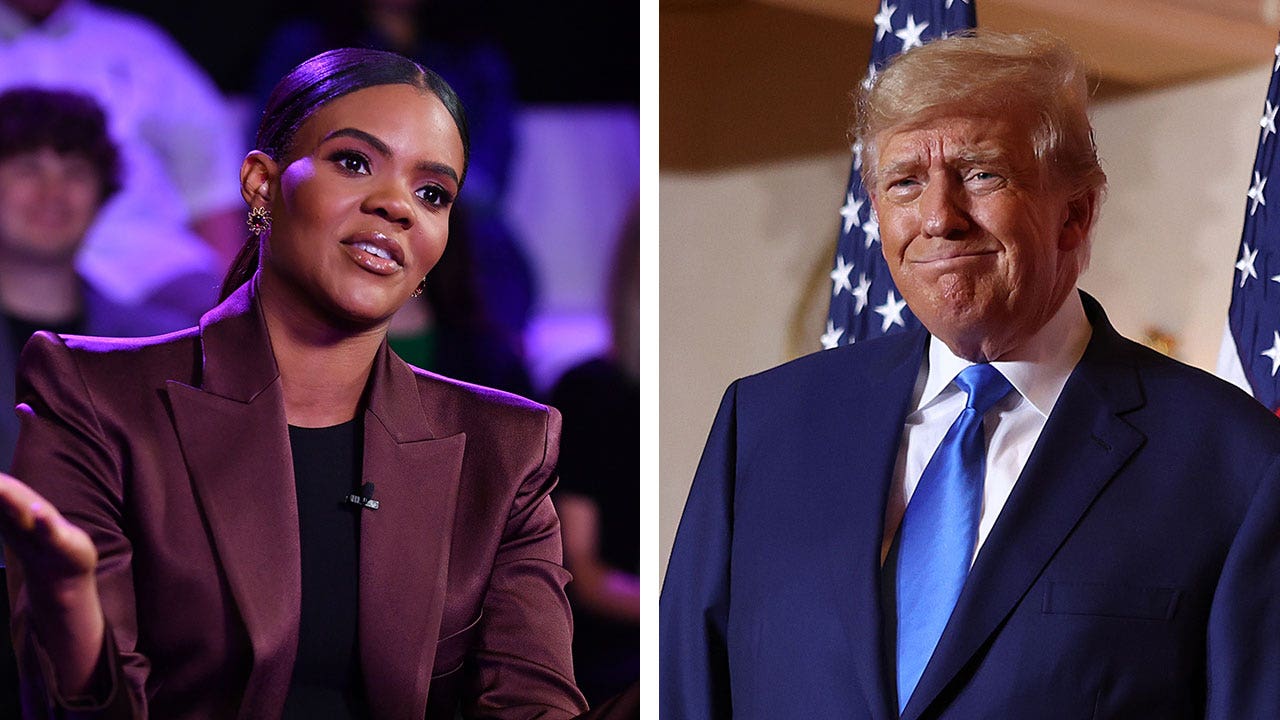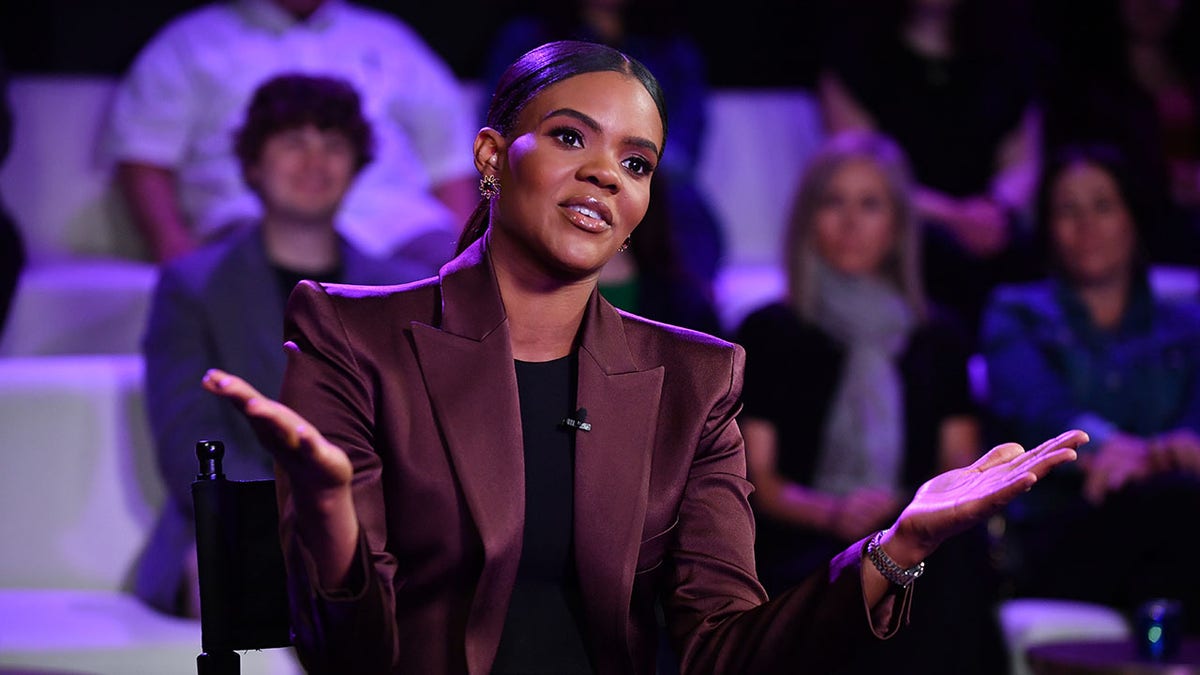Candace Owens: A Comprehensive Analysis Of Her Stance Against Trump
Candace Owens, a prominent figure in today's political landscape, has garnered significant attention for her outspoken views on various social and political issues. As a conservative commentator, her opinions often spark debates, especially when it comes to her stance against Donald Trump. In this article, we delve into the reasons behind her criticisms, exploring the nuances of her arguments and the impact they have on public discourse.
As a leading voice in the conservative movement, Candace Owens has established herself as a unique figure who challenges the status quo. Her rise to fame is marked by her ability to articulate complex ideas in a manner that resonates with a broad audience. However, her vocal opposition to Donald Trump has intrigued many, leading to questions about the motivations behind her stance.
This article will explore Candace Owens' perspective on Trump, providing a detailed analysis of her arguments and their implications. By understanding her viewpoints, readers can gain valuable insights into the complexities of modern conservative politics and the evolving nature of leadership in the United States.
Read also:Dirco Wont Bow To Pressure From Donald Trump Refuses To Drop Case Against Israel Despite Tariffs
Table of Contents
- Biography of Candace Owens
- Early Life and Career
- Political Journey
- Candace Owens Against Trump
- Reasons for Her Opposition
- Trump Supporters' Response
- Impact on American Politics
- Long-Term Effects of Her Criticism
- Expert Analysis and Opinions
- Conclusion
Biography of Candace Owens
Early Life and Career
Candace Owens was born on February 13, 1989, in Spring Valley, New York. Her upbringing in a predominantly African American community shaped her worldview and fueled her passion for advocating social change. Below is a summary of her early life and career:
| Full Name | Candace Monique Owens |
|---|---|
| Date of Birth | February 13, 1989 |
| Place of Birth | Spring Valley, New York |
| Education | Attended Rockland Community College |
| Career | Conservative Commentator, Activist |
| Notable Works | Blackout Movement, Social Media Presence |
Her journey into the world of politics began with her involvement in the Blackout Movement, where she advocated for economic empowerment within the African American community. This movement laid the foundation for her later work as a prominent conservative voice.
Political Journey
Candace Owens' political journey is marked by her transformation from a liberal to a conservative commentator. Her decision to embrace conservative values was influenced by her belief in limited government and personal responsibility. This ideological shift has positioned her as a unique voice within the conservative movement, challenging traditional narratives and advocating for change.
Candace Owens Against Trump
Reasons for Her Opposition
Candace Owens' stance against Donald Trump is rooted in several key issues. Her criticisms focus on Trump's leadership style, policy decisions, and the impact of his presidency on marginalized communities. Below are some of the primary reasons behind her opposition:
- Leadership Style: Owens argues that Trump's confrontational approach often alienates potential allies and undermines the principles of unity.
- Policy Decisions: She criticizes certain policies that she believes disproportionately affect minority groups, such as immigration and healthcare reforms.
- Representation: Owens contends that Trump's administration failed to adequately represent the interests of African Americans and other marginalized communities.
These criticisms highlight her commitment to advocating for policies that promote equality and inclusivity, aligning with her broader vision for a more just society.
Trump Supporters' Response
Trump supporters have responded to Candace Owens' criticisms with a mix of skepticism and admiration. While some view her as a traitor to the conservative movement, others appreciate her willingness to challenge the status quo and hold leaders accountable. This divergence in opinions reflects the broader complexities of modern conservatism and the diverse perspectives within the movement.
Read also:Sit Kwong Lam Net Worth
Impact on American Politics
Candace Owens' stance against Trump has had a significant impact on American politics. Her ability to articulate her views effectively has sparked important conversations about leadership, accountability, and the role of marginalized communities in shaping political discourse. By challenging the dominant narratives within the conservative movement, she has opened new avenues for dialogue and understanding.
Long-Term Effects of Her Criticism
Shaping Future Leaders
The long-term effects of Candace Owens' criticism of Trump are likely to influence the development of future conservative leaders. By emphasizing the importance of integrity, inclusivity, and accountability, she sets a standard for leadership that resonates with many within and outside the movement. This emphasis on values-based leadership could shape the trajectory of American politics for years to come.
Expert Analysis and Opinions
Experts in political science and sociology have weighed in on Candace Owens' stance against Trump, offering valuable insights into the implications of her criticisms. According to a study published in the Journal of Political Analysis, her ability to engage with diverse audiences has contributed to a more nuanced understanding of conservative ideology. Furthermore, her emphasis on accountability and representation aligns with broader trends in modern political discourse.
Conclusion
In conclusion, Candace Owens' opposition to Donald Trump highlights the complexities of modern conservative politics and the evolving nature of leadership in the United States. Her criticisms, rooted in issues of leadership style, policy decisions, and representation, have sparked important conversations about accountability and inclusivity. As a prominent voice in the conservative movement, her perspectives offer valuable insights into the challenges and opportunities facing the nation today.
We encourage readers to engage with these ideas by leaving comments, sharing this article, and exploring other content on our platform. Together, we can foster a more informed and inclusive dialogue about the future of American politics.


